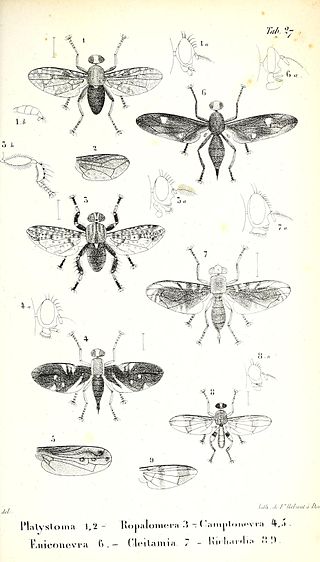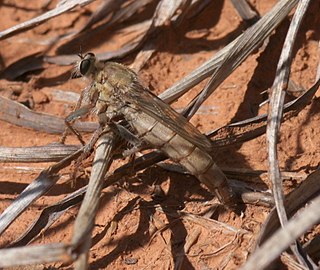
The Integrated Taxonomic Information System (ITIS) is an American partnership of federal agencies designed to provide consistent and reliable information on the taxonomy of biological species. ITIS was originally formed in 1996 as an interagency group within the US federal government, involving several US federal agencies, and has now become an international body, with Canadian and Mexican government agencies participating. The database draws from a large community of taxonomic experts. Primary content staff are housed at the Smithsonian National Museum of Natural History and IT services are provided by a US Geological Survey facility in Denver. The primary focus of ITIS is North American species, but many biological groups exist worldwide and ITIS collaborates with other agencies to increase its global coverage.

Haig's tuco-tuco, known regionally as the Patagonian tuco-tuco, is a hystricognath rodent. Like other tuco-tucos it is subterranean and thus not often observed, although the "tuc-tuc" call of the males can be heard near burrow sites, especially in the early morning. Like most species in the genus Ctenomys, C. haigi are solitary, with one adult per burrow.

Anne Haigis is a German musician, singer and songwriter. Through the 1980s, she gained commercial success with rock songs, blues and ballads sung in German with her native Swabian accent. In the 1990s she incorporated English language material again, and recorded with Tony Carey and Eric Burdon. Her intense and passionate singing style has been praised as belonging to one of Germany's best contemporary voices, a "down to earth, charismatic, warm-hearted entertainer".

Scleropogon is a monotypic genus of grass which includes the sole species Scleropogon brevifolius, or burrograss. This grass is found in two areas of the world, in North America from the southwestern United States to central Mexico and in South America in Chile and Argentina. This is a perennial mat-forming grass with sharp, tufted leaves and firm awns. This grass may be dioecious, with staminate and pistillate plants growing in separate colonies.

Hilaria mutica, synonym Pleuraphis mutica, is a species of grass known by the common name tobosa, or tobosa grass. It is native to Northern Mexico, and the Southwestern United States, in Arizona, New Mexico, Oklahoma, and Texas.

The Ropalomeridae are a family of acalyptrate flies.

iNaturalist is an American 501(c)(3) nonprofit social network of naturalists, citizen scientists, and biologists built on the concept of mapping and sharing observations of biodiversity across the globe. iNaturalist may be accessed via its website or from its mobile applications. iNaturalist includes an automated species identification tool, and users further assist each other in identifying organisms from photographs and even sound recordings. As of 9 July 2024, iNaturalist users had contributed approximately 197,660,888 observations of plants, animals, fungi, and other organisms worldwide, and 290,007 users were active in the previous 30 days.
Scleropogon duncani is a species of robber flies.

Scleropogon is a genus of robber flies. There are about 17 described species in Scleropogon.
Scleropogon texanus is a species of robber flies.
Scleropogon subulatus is a species of robber flies.
Scleropogon kelloggi is a species of robber flies .It is found Texas and Arizona.

Scleropogon picticornis is a species of robber flies.
Megarafonus is a genus of ant-loving beetles in the family Staphylinidae. There are about seven described species in Megarafonus.
Scleropogon bradleyi is a species of robber flies.

The 1934 Massachusetts gubernatorial election was held on November 6, 1934.

The 1936 Massachusetts gubernatorial election was held on November 3, 1936.
Animal Ethics is a nonprofit organization formed to promote discussion and debate around issues in animal ethics and to provide information and resources for animal advocates. They also do outreach work in several countries on the issue of speciesism. Their aim is to create a world where moral consideration is extended to all sentient beings. The organization's website covers topics such as speciesism, sentience, veganism and wild animal suffering and has content translated into several languages.

Massachusetts House of Representatives' 7th Norfolk district in the United States is one of 160 legislative districts included in the lower house of the Massachusetts General Court. It covers part of Norfolk County. Democrat Bill Driscoll Jr. of Milton has represented the district since 2017.
Lydia W. S. Finley is an American scientist and an assistant member at the Cell Biology Program at Memorial Sloan Kettering Cancer Center and an assistant professor at Weill Cornell Medical College. Finley is known for her contributions to understanding the metabolic underpinnings of stem cell fate.












